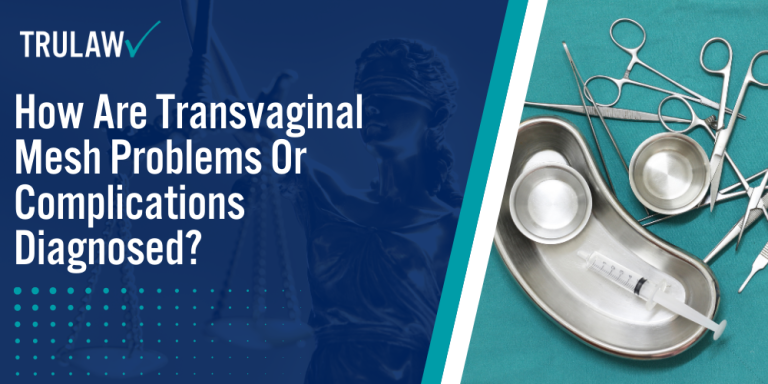Healthcare providers use various diagnostic approaches to identify transvaginal mesh complications, from initial assessments to advanced imaging techniques.
The evaluation process typically begins with a thorough patient history and physical examination, followed by specialized imaging when needed to confirm the diagnosis and determine the extent of mesh-related issues.
Initial Assessment of Transvaginal Mesh Problems
The first step in diagnosing transvaginal mesh problems involves a detailed patient history and symptom evaluation.
Women experiencing complications often report pelvic pain, vaginal discharge, bleeding, painful intercourse (dyspareunia), and urinary symptoms.
These symptoms may develop immediately after mesh placement or years later.
During the physical examination, healthcare providers perform a thorough vaginal examination to identify:
- Mesh exposure or erosion through the vaginal wall
- Areas of tenderness or pain when applying pressure to specific vaginal regions
- Trigger points that produce pain when the mesh is palpated
- Changes in vaginal tissue quality, including scarring or contraction
- Pelvic floor muscle tension or spasms
This initial assessment helps determine whether symptoms are related to mesh complications and guides decisions about further diagnostic testing.
If symptoms persist or the examination reveals signs of mesh-related problems, healthcare providers may recommend advanced imaging to fully evaluate the condition.
Advanced Imaging to Detect Mesh Implant Issues
When physical examination findings suggest transvaginal mesh complications, healthcare providers may use several advanced imaging techniques to confirm the diagnosis and plan appropriate treatment:
- Transvaginal Ultrasound (TVUS): This non-invasive first-line imaging method offers real-time visualization of mesh position, surrounding tissues, and complications without radiation exposure while guiding treatment planning for mesh removal procedures.
- Endovaginal Ultrasound (EVUS): Endovaginal ultrasound provides enhanced visualization of mesh placement and integration to determine the full extent of mesh-related issues and assist surgeons in planning partial or complete mesh removal.
- Magnetic Resonance Imaging (MRI): MRI delivers detailed images of pelvic organs, soft tissues, inflammatory changes, and potential mesh erosion into surrounding structures when ultrasound results are inconclusive or additional information is needed for surgical planning.
- Cystoscopy and Proctoscopy: These endoscopic procedures enable direct visualization of the bladder and rectum to identify mesh erosion, assess tissue damage, and guide surgical planning for mesh removal and repair.
The combination of physical examination findings and advanced imaging results enables healthcare providers to make accurate diagnoses and develop personalized treatment plans for women experiencing transvaginal mesh complications.
If you have concerns about potential mesh-related symptoms, contact TruLaw using the chat on this page to receive an instant case evaluation that can determine your eligibility to join others in filing a transvaginal mesh lawsuit.


